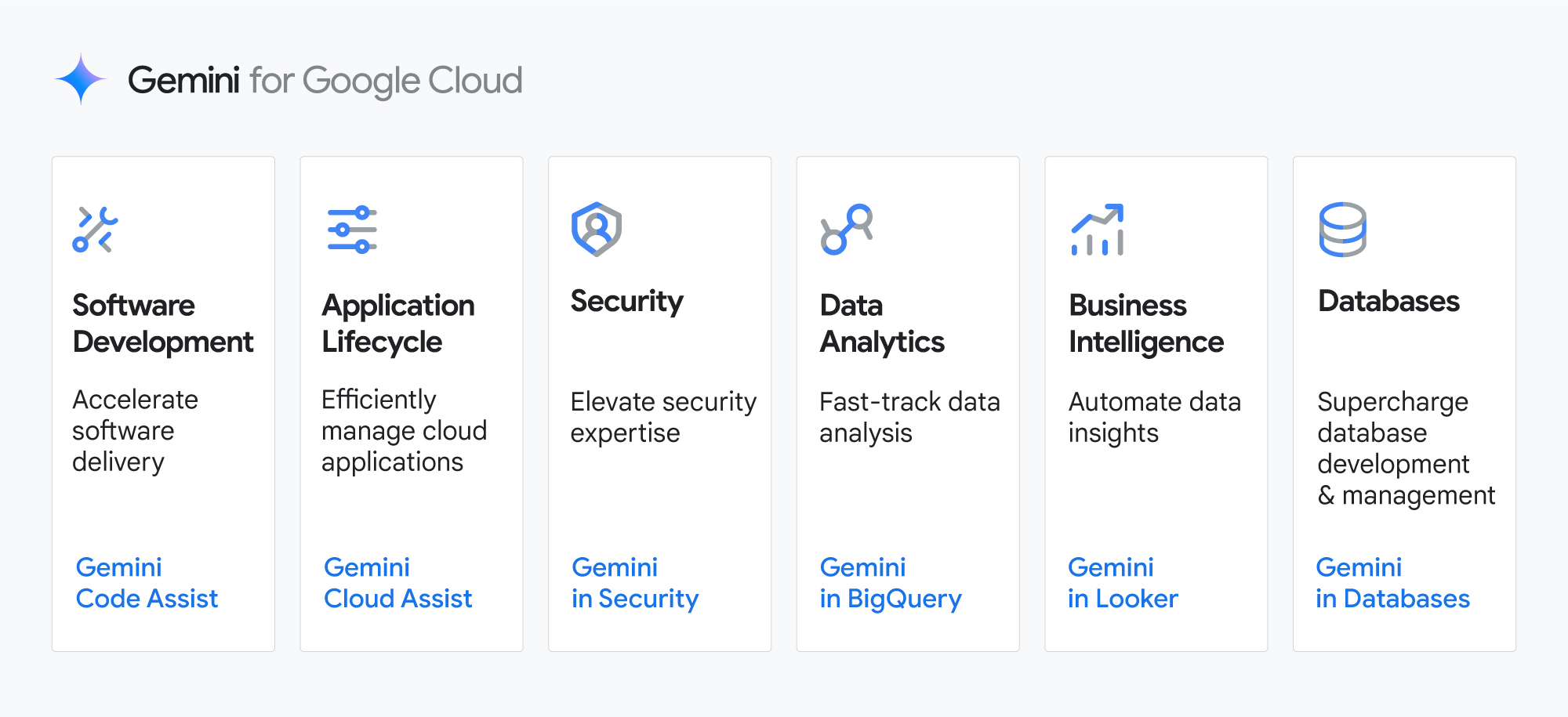ARTICLE AD
At its Cloud Next conference, Google on Tuesday unveiled Gemini Code Assist, its enterprise-focused AI code completion and assistance tool.
If this sounds familiar, that’s likely because Google previously offered a similar service under the now-defunct Duet AI branding. That one became generally available in late 2023, but even then, Google already hinted that it would move the service away from its Codey model to Gemini in the near future. Code Assist is both a rebrand of the older service as well as a major update.
Code Assist will be available through plug-ins for popular editors like VS Code and JetBrains.
Even more so than the Duet AI version, Code Assist is also a direct competitor to GitHub’s Copilot Enterprise and not so much the basic version of Copilot. That’s because of a few Google-specific twists.
Among those is support for Gemini 1.5 Pro, which famously has a million-token context window, allowing Google’s tool to pull in a lot more context than its competitors. Google says this means more-accurate code suggestions, for example, but also the ability to reason over and change large chunks of code.
“This upgrade brings a massive 1 million-token context window, which is the largest in the industry. This allows customers to perform large-scale changes across your entire code base, enabling AI-assisted code transformations that were not possible before,” Brad Calder, Google’s VP and GM for its cloud platform and technical infrastructure, explained in a press conference ahead of Tuesday’s announcement.
Like GitHub Enterprise, Code Assist can also be fine-tuned based on a company’s internal code base.
“Code customization using RAG with Gemini Code Assist significantly increased the quality of Gemini’s assistance for our developers in terms of code completion and generation,” said Kai Du, Director of Engineering and Head of Generative AI at Turing. “With code customization in place, we are expecting a big increase in the overall code-acceptance rate.”
This functionality is currently in preview.
Another feature that makes Code Assist stand out is its ability to support codebases that sit on-premises, in GitLab, GitHub and Atlassian’s BitBucket, for example, as well as those that may be split between different services. That’s something Google’s most popular competitors in this space don’t currently offer.
Google is also partnering with a number of developer-centric companies to bring their knowledge bases to Gemini. Stack Overflow already announced its partnership with Google Cloud earlier this year. Datadog, Datastax, Elastic, HashiCorp, Neo4j, Pinecone, Redis, Singlestore and Snyk are now also partnering with Google through similar partnerships.
The real test, of course, is how developers will react to Code Assist and how useful its suggestions are to them. Google is making the right moves here by supporting a variety of code repositories and offering a massive context window, but if the latency is too high or the results simply aren’t that good, none of those features matter. And if it’s not significantly better than Copilot, which had quite a headstart, it may end up suffering the fate of AWS’ CodeWhisperer, which seems to have close to zero momentum.
It’s worth noting that in addition to Code Assist, Google today also announced the launch of CodeGemma, a new open model in its Gemma family that was fine-tuned for code generation and assistance. CodeGemma is now available through Vertex AI.
Cloud Assist
In addition to Code Assist, Google also today announced Gemini Cloud Assist to help “cloud teams design, operate, and optimize their application lifecycle.” The tool can generate architecture configuration that are tailored to a company’s needs, for example, based on a description of the desired design outcome. It can also help diagnose issues and find their root causes, as well as optimize a company’s cloud usage to reduce cost or improve performance.
Cloud Assist will be available through a chat interface and embedded directly into a number of Google Cloud products.

 10 months ago
43
10 months ago
43 


